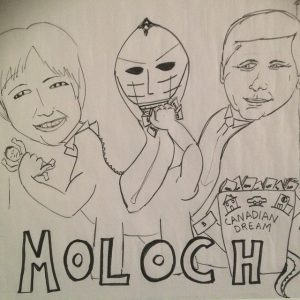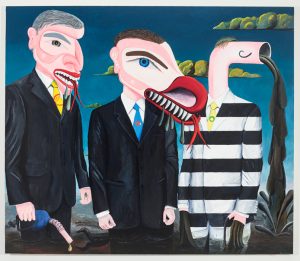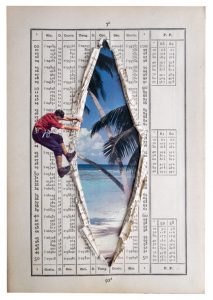a short story that describes your sense of home; write about the values and the stories that you use to connect yourself to, and to identify your sense of home.
– assignment given by erika paterson.
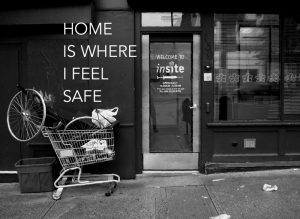
we grew up together in two houses. the first was a small, modern white foursquare with aluminum siding, just off the main lower town drive. the property was so young that the yard was still filled with fruit trees and stumps from it’s former purposes when we moved in. our family of five fit snugly in its papered walls. on winter evenings we would all gather tightly into the back fireplace room, the kids around the computer, the dog in his blanketed corner, while mom and dad watched the evening news from the couch. on summer nights we would run with the neighbour kids, taking turns hiding in the truck canopy and corn stalks. we climbed countless orchard trees and wood piles, and endlessly scaled the claybanks and cottonwood ravines. we grew with fruit, punishing each other with its damp and rot; selling its novel, ripe sweetness down the road where people came from out of town to camp. we grew with the sumacs and overgrown trees, with grit and dirt in our fingernails. there is a cliff where i can still see the path we cut from our house down peach orchard. i can still see the creek brush we thrashed and the willows we used to make shelters and the spot where buster would lie for hours. i can still see the clay bank etchings we carved and the exact cracks up the road that derailed our bikes. the stones covered with fireweed that we curled into and dug through. the fruit trees we climbed. the maple. the willows. the trees and branches and leaves we grew with. it’s all there still. all of it. all those trees we grew with. i think our blood is still in the ground and clay and brush and dog run kennel. i think our souls are still searching under the night sky for the best new hiding spot. i think they are still waiting in the grass and corn and sound of crickets to be found.
but as our bodies developed, a need for space increased, and suddenly, violently, our youth interrupted childhood. we moved two blocks up the hill, to a dry, piney ridge overlooking the languid valley. it took me years to get over the move. the space between myself and my family grew with the larger house, and i was shocked by it’s unfamiliarity. i changed schools, friends and interests more quickly than i could keep up with. my room was in the dim, lower recesses of the mid-century house, without ceiling lights or base heater. the wintery years that followed were cold and dark. just down the street, the claybanks were flattened and laid with concrete for development. i could not reconcile the pure home of my childhood with the anxious confusion of my youth.
i did not feel like i had found home again until i moved into the dirty folds of inner city vancouver. for the first time in years, i began to sense the comfort of belonging again, in the pulsing gesture and grit of the city. it was the overcast of the coastal sky and the predictability of rain slick against the pavement. it was the constant wail of traffic, and entire blocks of people hanging onto life by the thread fibres of their being, making homes of dilapidated boarded blocks and old slum hotels with broken, unlit neon signs. graffiti littered the rundown buildings and indicated a landless ownership stronger than that of the absent corporate company lot owners. i felt a strange, incoherent embrace into the skids and their alleyways. it took me years to realize that i didn’t really belong in that neighbourhood, and until i did, i ingested every last facet of beauty that it held to my eyes. or maybe i did belong for a time. i sunk into old patio chairs and concrete and smoked cheap street cigarettes while i watched and felt the people around me. my jobs and relationships took me in and out of old shelters, cheap dive bars and run-down single room occupancies. for a couple years, i had a tiny corner of office in a coffee shop between the safe injection site on the east, and the co-op radio on the north. there were so many beautiful people that passed through the front doors of my downtown eastside cafe life, i couldn’t keep track. i was over-caffeinated and started drinking too much to balance the overstimulation. i fell in love twice, and the second time it was the slow reciprocation of a shadow human i shouldn’t have trusted. but in spite of him i was still in need of the change his presence instigated.
in 2009, i moved from an overcrowded and heavily insect/rodent infested flat on main street to a moist and earthy two bedroom suite burrowed in the bottom of a century old eastside house. it was the first home that i shared with a romantic partner and really, the only one. we spent winters curled up inside its warm, conclave retainer. i slowly began to go to college, dreaming aloud about being able to afford our own home one day. i wanted to live in the city, but no one could afford to buy in the city anymore. he wanted us to leave for the valley which gave me shivers thinking about. we fought our way through our misgivings, and made love beneath the the wet glare of streetlights and the hum of passerbys on concrete, refracted through our window blinds. potato bugs hollowed through the wood of the stairs into my living room and whenever it rained, earthworms would slip under the front door and litter the top step. there was a fig and maple tree in the fenced back yard, cut with a line of tulips and lilies in concrete planters. every winter in late january, tiny white snowdrops would bloom all over the slip of front lawn. the mismatched composite of acquaintances who creaked on the house floors above me blossomed into friends and family all at once. in many ways it was everything i had ever wanted. but that was all before the plumbing began to give and the landlords turned to talk of tearing it down; it was before my brother died and the shadow started to talk about leaving and the black mould began to grow thick in the windows and under the stairs.
that suite was so close to the glory of the earth. so moist and close to the soil. i felt alive there. i felt content there. but ever since matt’s death, there was a hole left. a crack opened up in the home i had imagined for myself. we were all wrenched from the home we tried to build, and forced to relocate into something we did not expect so soon.
after a year of wrestling i had to pack my things and quit my job and leave all my friends and my inspiration in the expensive city because i got too sick to be there and too sick to live without the support of my family. i almost died from a digestive/nerve issue that brought me to the point of starvation.
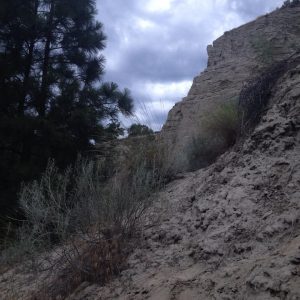
most people who live in the city i’m from have moved more than me. many have been homeless, living out of cars, vans, friends couches, shelters. i know so many people who have stayed at shelters at some point in their life. it’s an expensive city, the most expensive in north america. and it’s only getting worse. people set up tent dwellings and the city makes them take it down. or puts up fences around the bridges where they try to sleep.
i liken watching the gentrification of the dtes to the experience of losing my brother. it is a deep visceral loss that hits me in the gut and brings me to tears on a regular basis. it’s just that the soul of ourselves is in the dtes. it’s in the skids. it’s in the hearts and minds of junkies and the sensitive intuitive empaths and the poor who have experienced the hardest darkest things of this life. and we are ripping it apart.
there are many ways to build a home. many winding paths and broken stones. i am so fucking wealthy. i have so much. it gets easier to say that the more i let go of normality. the more i let go of trying to reach some dumb idea that success and happyness and perfection comes from a big paycheque and a house. normality is a lie.
the most important thing is finding the path that is best for me. the one that gives me the most stability possible in an uncertain life. this is the story i tell myself. my experience is important. and so are the experiences of the others around me. because they are a part of my own. they affect my story. especially the experiences of the poor and vulnerable, of people of colour and first nations who have gotten the brunt of the crises that arise in this time in history.
i have had a lot of uprooting.
we all have.
i wish that i could somehow pull together all the scattered pieces of my home around me and build some sort of shelter so that i wouldn’t have to keep moving.
i wonder if we ever feel at home for long. is it possible to with so many things ever-changing? does home require constants?
works cited
“The Science”. Insite For Community Safety. www.communityinsite.ca/science.html. Accessed 25 Sept. 2016.
Lines, Stephanie. “A photo of Where I Grew Up”. July 2016. Photograph.
Paterson, Erika. “Lesson 2.1”. ENGL 4710 Canadian Literary Genres: Canadian Studies. University of British Columbia. Nov. 2013. blogs.ubc.ca/courseblogsis_ubc_engl_470a_99c_2014wc_44216-sis_ubc_engl_470a_99c_2014wc_44216_2517104_1/unit-2/lesson-2-1. Accessed 25 Sept. 2016.
“The Housing Crisis in BC”. Social Housing Now! 2014. www.socialhousingbc.com/about/. Accessed 25 Sept. 2016.
 Follow
Follow